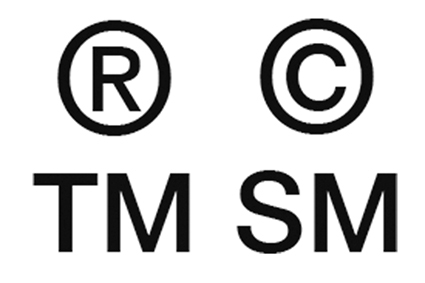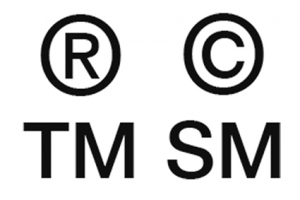Dechert OnPoint: Trademark Protection in Georgia
Dechert Georgia, through the contribution of partners Archil Giorgadze and Nicola Mariani, joined by senior associates Ruslan Akhalaia and Irakli Sokolovski, as well as Ana Kostava and Ana Kochiashvili, is partnering with Georgia Today on a regular section of the paper which will provide updated information regarding significant legal changes and developments in Georgia. In particular, we will highlight significant issues which may impact businesses operating in Georgia.
Trademark Protection in Georgia
March 2016 marked an important development in the sphere of intellectual property protection in Georgia, especially with regard to the elaboration of trademark protection. The Supreme Court of Georgia (the “Court”) issued a key judgment clarifying the legal status of the burden of proof principle with regard to counterfeited trademarks in Georgia. The legal status of trademarks is governed by the Georgian Law on Trademarks (the “Law”), which was passed in 1999. Accordingly, the LEPL National Center of Intellectual Property (“Sakpatenti”) was entrusted with the administration of trademark regulatory matters. Georgia is party to major international conventions in the field of trademark protection, e.g. the Paris Convention for the Protection of Industrial Property signed in France on 20 March 1883 (revised in Stockholm, Sweden on 14 July 1967 and amended on 28 September 1979) (the “Paris Convention”); and the Madrid Protocol Treaty for the international registration of trademarks signed in Spain on 27 June 1989 (the “Madrid Protocol”), among others.
This week’s edition of OnPoint provides an overview of regulations related to trademark protection in Georgia, devoting particular attention to recent Court practice in the field.
Legal Definition of Trademark
In Georgia, a trademark is defined as a graphical sign or combination of geographical signs that is capable of distinguishing the goods and/or services of one company from those of another. A sign may be: a word or phrase, including personal names; letters; numerals; sounds; images; 3D figures, including shapes of goods or their packaging; and any other decoration on the goods that uses a color scheme or any combination of color schemes. Trademarks are protected based on their registration with the Sakpatenti or based on the relevant international agreements. Well-known trademarks in Georgia are protected without registration in accordance with Article 6bis of the Paris Convention and the Madrid Protocol. A trademark is defined as “well-known” upon the request of the persons concerned and by the decision of the Chamber of Appeals of the Sakpatenti or by a court acting under its jurisdiction.
Grounds for Denial of Registration
Sakpatenti will not register a sign or a combination of signs as a trademark if: (i) it is a single non-styled letter or numeral or color; (ii) it is not capable of distinguishing appropriate goods or it is a descriptive mark of goods; (iii) it has come into universal use as a generic concept for a definite type of goods; (iv) it is a universally-accepted term or sign characteristic to the goods included in the course of trade, the registration of which is required; (v) it abuses or contradicts national values, religion, traditions or moral standards; (vi) it is of such a nature as to deceive consumers with regard to the properties, quality, geographical origin or any other characteristic of the goods; (vii) it coincides, fully or in one of its constituent elements, with the national coat of arms, flag, emblem, or full or abbreviated name of a foreign country or an international or intergovernmental organization; or (viii) the current or historical name of Georgia or its territorial unit, its coat of arms, flag, emblem or monetary symbol. The above symbols can be included in a trademark as an unprotected component with the consent of the Ministry of Culture and Monuments Protection of Georgia or the consent of its proprietor for use of the symbol.
In addition, a trademark will not be registered by Sakpatenti if it is identical or similar with the trademark of goods that have been registered earlier or are universally accepted as a trademark belonging to a third person.
Rights of the Trademark Holder
The exclusive rights of a proprietor to a registered trademark begin from the date of registration of the trademark. The trademark proprietor can prevent a third party from using a trademark without his/her permission if the trademark is identical to a protected trademark and the goods are identical or so similar that there is a likelihood of confusion due to that similarity, including the likelihood of confusion as a result of association, and when the trademark is not identical but is similar to the protected trademark and the use of the trademark undeservedly creates favorable conditions for the third party or damages the reputation or distinctiveness of the trademark. Without the permission of the trademark holder, third parties are prohibited from: (i) affixing a trademark to any goods or to the packaging thereof; (ii) offering the goods, making them available in the course of trade, stocking them for purposes of trade or importing or exporting the goods under the sign; (iii) offering or providing services using the trademark; and (iii) using the trademark in advertising or on business papers, among others.
Supreme Court Decision on Counterfeited Trademarks
The Court delivered a decision on 18 March 2016 regarding the holders of exclusive rights to trademarks and the notion of counterfeit goods (the “Decision”). The Decision notes the fact that registration is constitutive and decisive for the protection of trademarks in Georgia.
Furthermore, the Decision interpreted and outlined three conditions for defining goods as counterfeit: (i) the goods are identical to goods under a trademark that is legally registered in Georgia; (ii) the goods bear identical trademarks; and (iii) such usage of the trademark is unauthorized.
The Court noted that a certificate of registration is sufficient to prove the claimant’s exclusive rights over the trademark. The respondent bears the burden of proof to confirm that it had authorization to use the trademark. According to the Decision, the claimant shall not be responsible for proving a non-existent fact, such as the absence of authorization. The Decision also explained that the Court is responsible for comparing registered trademarks and counterfeit goods in order to rule on their similarity. Moreover, the Court discussed a claim regarding the destruction of counterfeit goods. The Decision underlined the importance of proportionality and noted that the destruction of goods is permitted in cases when separation of the goods and the trademark is practically impossible.
The Decision should be considered a positive step forward for Georgia’s legal system with regard to trademark law. By establishing a more clear definition of counterfeit goods and establishing practices for hearing trademark cases, the Court has elaborated Georgia’s legal framework for trademarks in a constructive manner.
Dechert’s Tbilisi office combines local service and full corporate, tax and finance support with the global knowledge that comes with being part of a worldwide legal practice.
Dechert Georgia is the Tbilisi branch of Dechert LLP, a global specialist law firm that focuses on core transactional and litigation practices, providing world-class services to major corporations, financial institutions and private funds worldwide. With more than 900 Lawyers in our global practice groups working in 27 offices across Europe, the CIS, Asia, the Middle East and the United States, Dechert has the resources to deliver seamless, high quality legal services to clients worldwide. For more information, please visit www.dechert.com or contact Nicola Mariani at nicola.mariani@dechert.com.
* * *
Note: this article does not constitute legal advice. You are responsible for consulting with your own professional legal advisors concerning specific circumstances for your business.











